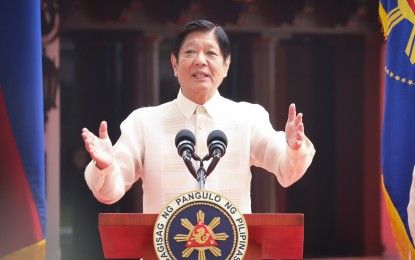Former President Ferdinand Marcos Sr. created two labor agencies that would deal specifically for laborers deployed abroad– the Philippine Overseas Employment Agency in 1982 and the Overseas Workers Welfare Administration (in 1977) – both of which virtually institutionalized the deployment of brawns and brains globally.
The result— brain drain for the local market – which is now worrying the government after a recommendation was raised to require fresh grads to render service in the country first before working abroad.
His son, incumbent President Ferdinand Marcos, Jr., now voiced his concern about the persistent shortage of brains and brawn in the country, as he created a strategy that would convince fresh graduates to stay and serve the Philippines for a few years before leaving for abroad.
However, some of those fresh graduates have pending petitions– emanating from previously applied resident or working visas and job applications filed on their behalf by friends, relatives and even college/university peers in companies based abroad.
Thus, they just finished their studies here and must leave for jobs waiting for them.
Others, however, wait in long queues to apply for jobs abroad, which could offer them better pay rates and better living conditions.
Usually, many end up landing jobs that do not deliver on their committed pay rates or do not afford them better living conditions than what they used to enjoy in their home countries, hence, the need for an agency to attend to their repatriation here.
Halting ‘brain drain’
The deployment of talents were encouraged by Marcos Sr. in view of limited available jobs and poor wages amid a deteriorating economy, back then.
But this is not the same perception of the current administration– which touts about better economic conditions and brighter prospects.
Marcos Jr. said it was “fine” with him if graduates, particularly in the fields of healthcare and information technology, to practice their professions abroad.
But this results in the loss of talents for the country, the Philippine Daily Inquirer quoted him as saying.
“We have to come up with some kind of strategy wherein, let’s say, you provide scholarships and then the scholarship agreement includes that you stay three years. After that then they’re free to go,” Marcos said during his meeting with the Private Sector Advisory Council-Jobs Sector Group (PSAC-Jobs) as revealed by the Presidential Communications Office’s statement.
PSAC officials agreed that the local labor market for health care and IT sectors cannot match the high pay offered in the United States, the United Kingdom, Australia, and Europe, the PCO said.
“I think what we can do is to continue to offer certificate programs and train their skills. I think we can do that. There’s no way for us to retain them,” said Teresita Sy-Coson of SM Investments Corp, who presented the PSAC for the PSAC Jobs sector.
“Even in the digital, if we train them in cybersecurity or in whatever advanced technology, they’ll also leave. If only we can get them for two years, good enough na rin,” Coson added.
The PSAC-Jobs also suggested additional reinforcement of Marcos’ earlier directive to prioritize the creation of a coordinated game plan for various government agencies to negotiate with other countries on hiring Filipino workers.
These include the Department of Health, the Commission on Higher Education, the Department of Migrant Workers, and the Department of Foreign Affairs.
The DOH’s human resources for healthcare master plan should be supported, to include requiring hospitals or schools to adopt them, equipping them with the proper skills to participate in the country’s labor force, and requiring them to stay in the Philippines for at least two years.
#Marcos #BBM #PBBM #Labor #OpinYon #WeTakeAStand

